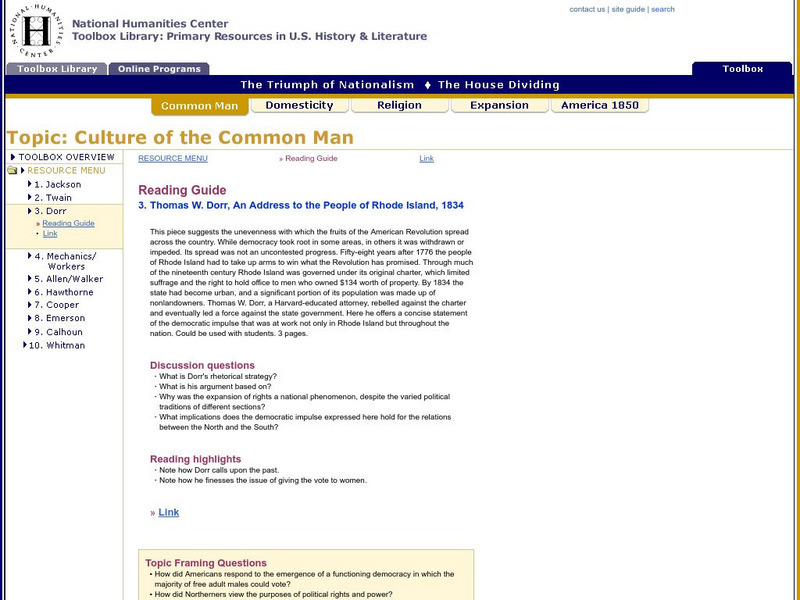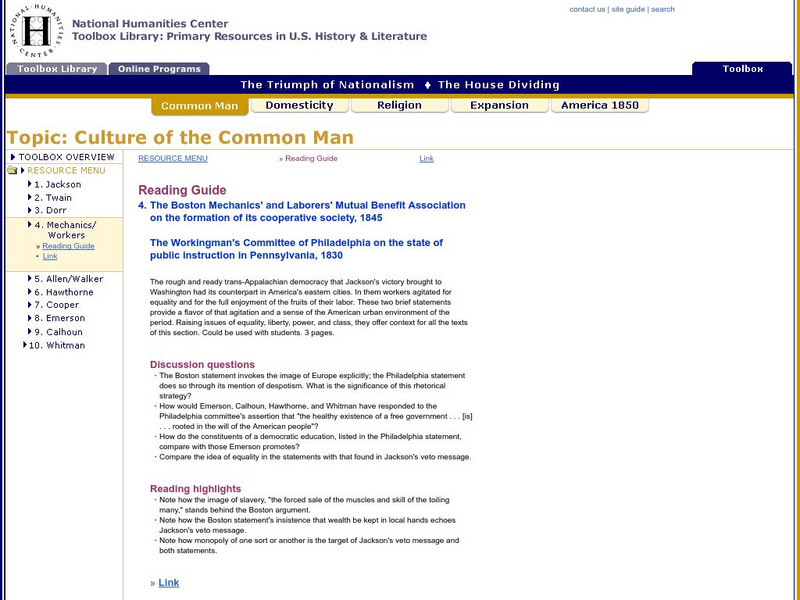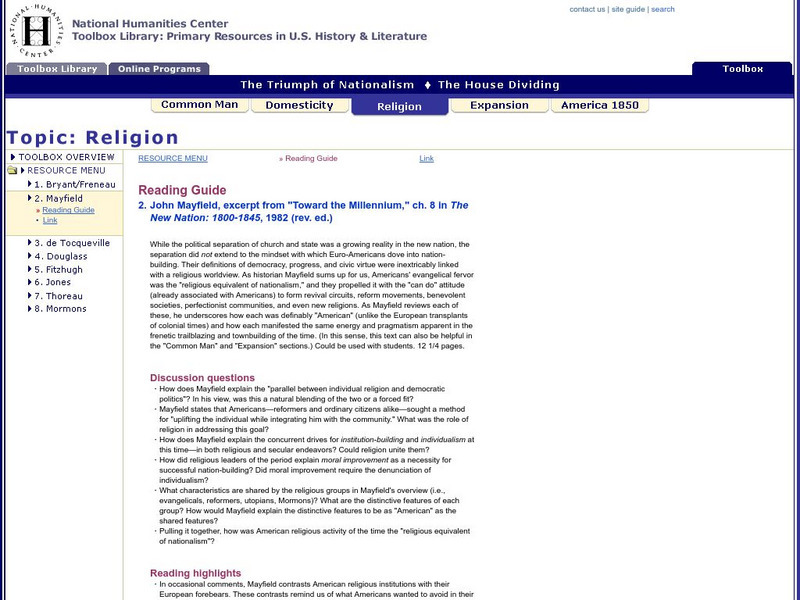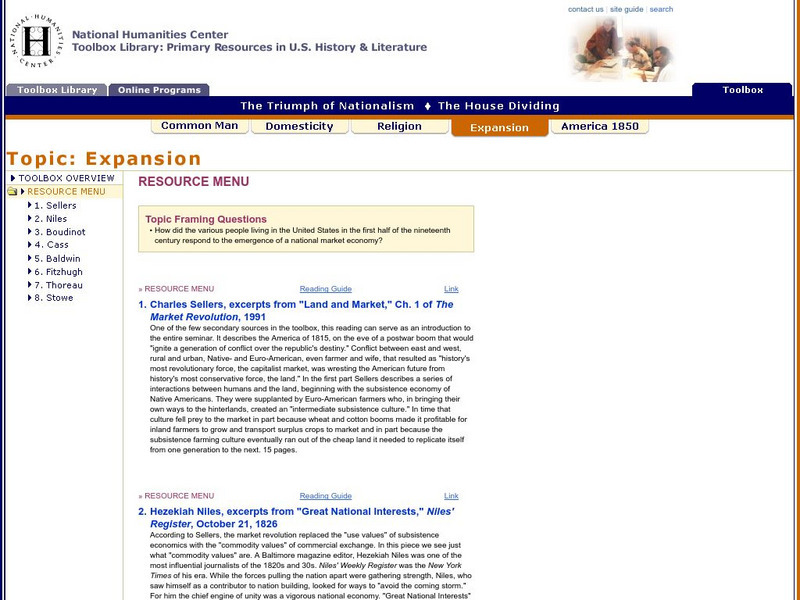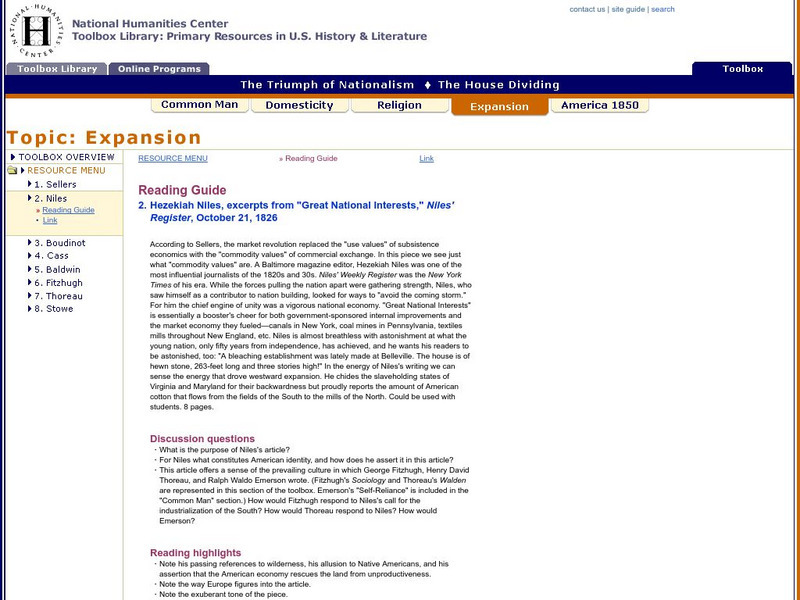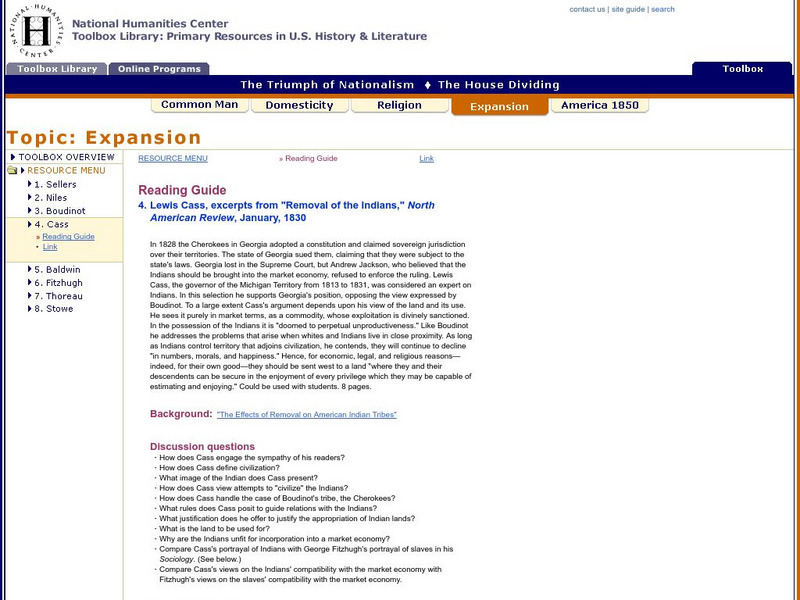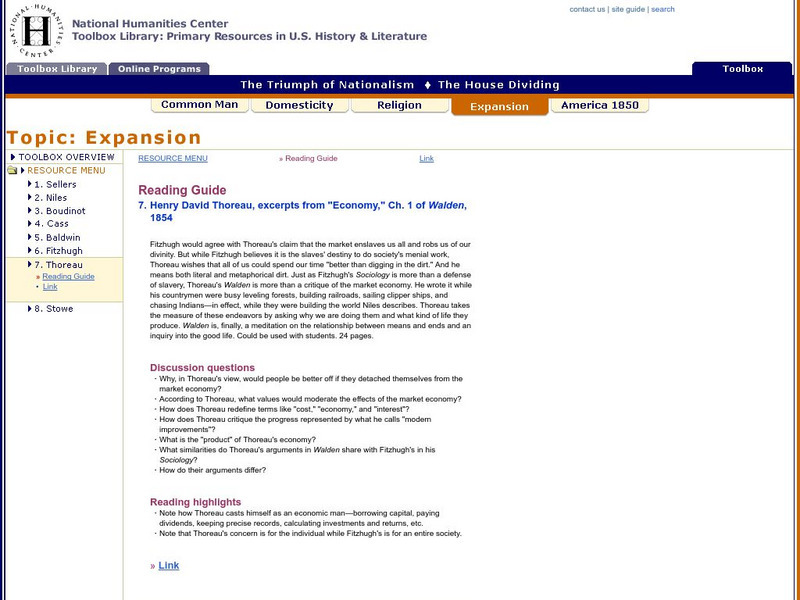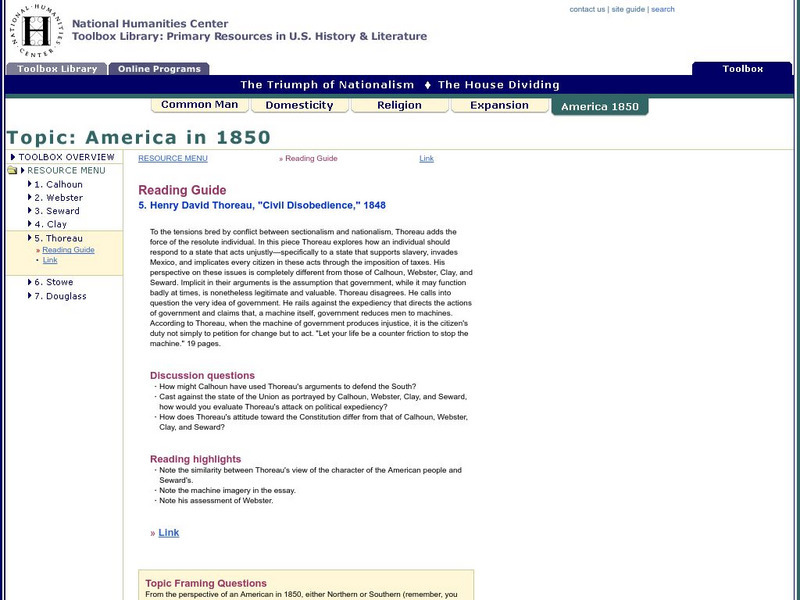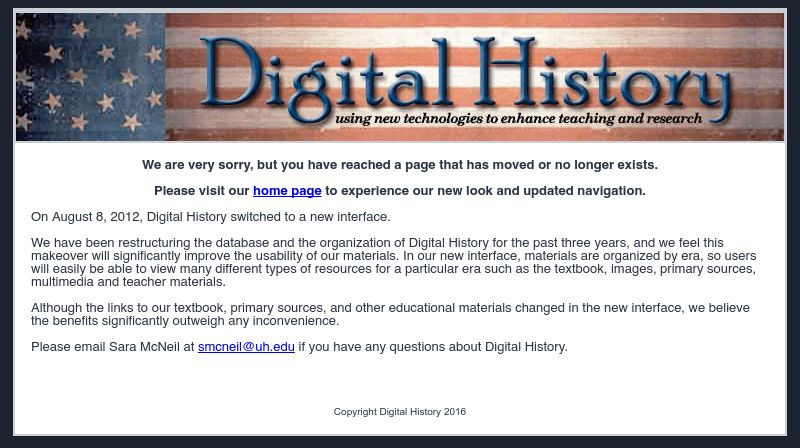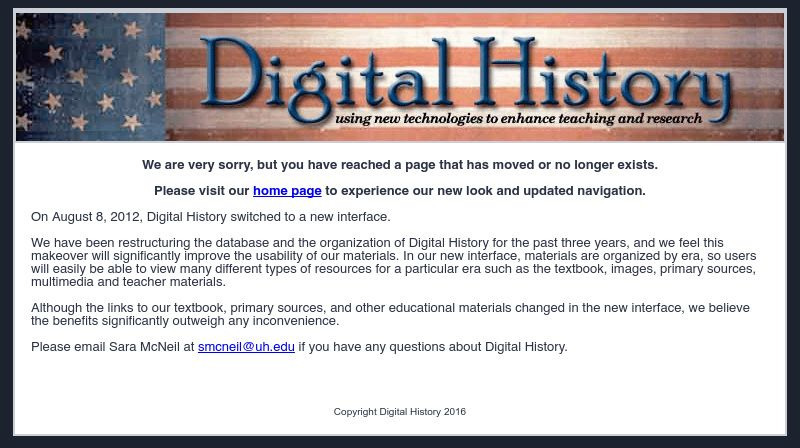National Humanities Center
National Humanities Center: Toolbox Library: The Triumph of Nationalism: House Dividing: America, 1815 1850
A collection of forty-four primary resources including historical documents, literary texts, visual images, and maps, illuminated and contextualized by notes, thematic questions, and text-specific discussion questions for classroom...
National Humanities Center
National Humanities Center: Toolbox Library: Thomas W. Dorr, an Address to the People of Rhode Island, 1834
An 1834 speech that calls citizens to rise up against anti-democratic values in Rhode Island including property requirement to vote.
National Humanities Center
National Humanities Center: Toolbox Library: Mechanics/workers, Triumph of Nationalism: America, 1815 1850
Two statements issued by workers' groups advocating greater equality for all who labor.
National Humanities Center
National Humanities Center: Toolbox Library: Walt Whitman, Triumph of Nationalism: America, 1815 1850
Whitman's poem celebrating the integrity and industry of the masses within a democratic culture.
National Humanities Center
National Humanities Center: Toolbox Library: Religion: John Mayfield
Primary resource of John Mayfield, as he discusses civic life, religion and the growth of American democracy in an excerpt from "Toward the Millennium," ch. 8 in The New Nation: 1800-1845, 1982 (rev. ed.)
National Humanities Center
National Humanities Center: Toolbox Library: Expansion: Triumph of Nationalism: America, 1815 1850
A collection of eight primary resources--historical documents, literary texts, visual images, maps--illuminated and contextualized by notes, thematic questions, and text-specific discussion questions for classroom instruction and teacher...
National Humanities Center
National Humanities Center: Toolbox Library: Charles Sellers: Triumph of Nationalism: America, 1815 1850
A secondary account from a contemporary historian that examines early nineteenth century forces and the interplay of markets and territorial expansion.
National Humanities Center
National Humanities Center: Toolbox Library: Hezekiah Niles: Triumph of Nationalism: America, 1815 1850
Magazine excerpts that celebrate the government sponsored internal improvements of the early nineteenth century and the market economy that they fueled.
National Humanities Center
National Humanities Center: Toolbox Library: Lewis Cass: Triumph of Nationalism: America, 1815 1850
An argument by the Michigan Territorial governor, Lewis Cass, that claimed state laws superseded the rights claimed by Native American tribes like the Cherokee.
National Humanities Center
National Humanities Center: Toolbox Library: James G. Baldwin: Triumph of Nationalism: America, 1815 1850
An essay that describes the exuberant life of a frontier society with all its corruption, violence, vitality, and opportunity.
National Humanities Center
National Humanities Center: Toolbox Library: Henry David Thoreau, Excerpts From "Economy," Ch. 1 of Walden, 1854
A chapter from Walden that critiques and challenges the new market economy of the nineteenth century.
National Humanities Center
National Humanities Center: Toolbox Library: Henry David Thoreau: Civil Disobedience: 1848
Thoreau's essay that calls for citizens to break unjust laws, particularly those promoting the continuation and expansion of slavery.
Digital History
Digital History: Era of Good Feelings: Growth of American Nationalism
Part of an on-line textbook, this essay deals with the rise of nationalism in James Monroe's Era of Good Feelings and Monroe's attempts to solidify that idea.
University of Groningen
American History: Essays: Philosophy and Literature: Quest for Nationalism
Describes the struggle of Americans to develop a unified sense of national identity in the 1800s.
Digital History
Digital History: Conquering Space
A good review of how the rise of nationalism led to western expansion, support for federal funds to build infrastructure, and the protection of new American industry.
Digital History
Digital History: Shifting Political Values
A description of the changing ideas of the young Democratic Republicans and the three men who, in the 1820s, supported those values. These three men would be important players in the national government for the next 40 years.



